- Home
- Patricia Highsmith
Those Who Walk Away Page 3
Those Who Walk Away Read online
Page 3
“We were so surprised when Ed came up to us this morning in the plaza,” Mrs Smith-Peters said to Inez. “We had no idea he was here. We’re just here for a couple of weeks while they’re installing the central heating in our Florence house.” She looked at Ray. “We met Ed and Peggy in St Moritz one Christmas.”
“Laura, would you like to sweeten that tea with a cognac?” Coleman interrupted.
“No, thank you, Ed. Cognac keeps me awake,” Mrs Smith-Peters replied. She turned to Inez. “Are you here for long, Mme. Schneider?”
“You will have to ask Edward that,” Inez said with a wave of a hand. “He said something about painting here, so—who knows?”
Her frankness, the fact she admitted being in Coleman’s charge, seemed to surprise Mrs Smith-Peters, who might have suspected their relationship but hadn’t expected the female half to reveal it. “Paintings—of Venice?”
Ray tried to imagine what Coleman’s heavy black outlines and flat expanses of unvaried colour would make of Venice.
“You seem quite depressed,” Mrs Smith-Peters said gently to Ray, and Ray hated Coleman’s hearing it.
Coleman listened.
“That can’t be helped,” Ray said just as quietly, and in a way that he hoped dismissed the subject, but Coleman said:
“Why shouldn’t he look gloomy—a man who saw his wife die, a girl die, two weeks ago.” Coleman waved his cigar for emphasis.
“He did not see her die, Edward,” Inez said, leaning forward.
He saw her die by inches before he found her dead, Coleman retorted. He was certainly feeling his liquor, but he was also far from drunk.
Mrs Smith-Peters seemed to want to ask a question, but thought better of it. She looked like a distressed little Irish girl.
“It happened while Ray was out of the house for several hours,” Inez said to Mrs Smith-Peters.
“Yes, and where was he?” Coleman smiled towards Antonio, who still listened with serious attention, then turned towards Mr Smith-Peters, whom he wanted to draw into the conversation. “He was at the house of a woman neighbour. On a morning or an afternoon when his wife was obviously in trouble, he was somewhere else.”
Ray could not look at anyone at the table. But Coleman’s words did not hurt so much now, strangely, as they had in Mallorca when he and Coleman had been alone. “She was not obviously in distress that day,” Ray said.
“No more than any other day, you mean,” said Coleman.
“Edward, I am sure we don’t want to hear all this again,” Inez said, tapping with a table-knife hilt on the tablecloth, the knife held straight up. “I am sure the Smith-Peters don’t.”
“There was no one in the house?” Mrs Smith-Peters asked softly, perhaps meaning to show polite interest, but it was awful.
“The maid was there, but she left at one after fixing the lunch,” Coleman told her, glad of an ear. “Ray came home after three and found Peggy in the tub. Cut her wrists. Drowned also.”
Even Antonio squirmed slightly.
“How awful!” Mrs Smith-Peters murmured.
“Good God!” whispered Mr Smith-Peters, and cleared his throat.
“Ray wasn’t back for lunch that day,” Coleman said, meaningfully.
Nor did that hurt so much. Ray had been at the house of Elizabeth Bayard, American, aged twenty-six or so; and he had been looking at her drawings, which were better than her paintings. She was new in the village, and he and Peggy had been to her house only once. She had served him a Dubonnet and soda with ice, and he had talked and smiled a great deal that day, he remembered, enjoying Elizabeth’s company because she was attractive, decent and well-meaning; though not even those qualities were needed to make him enjoy those two or three hours with her, because he was tired of the handful of Americans and English in the village. He had said, ‘I’m sure Peggy doesn’t care if I’m back for lunch or not. I said I mightn’t be.’ Lunch was always cold, and they could eat it or not eat it, and at whatever hour they wished. And it was quite true, as Coleman implied, that he found Elizabeth Bayard attractive (Coleman had put it more strongly in Mallorca, but Ray had conceded nothing on this point), and he remembered thinking that afternoon that he could, if he were so inclined, probably start an affair with Elizabeth and conceal it from Peggy, and that Elizabeth would be casual and affectionate and that it would be a most salubrious change from Peggy’s mysticism for him. Ray also knew he never would have begun an affair. One couldn’t, with a girl like Peggy for a wife, a girl for whom ideals were real, even indestructible, maybe the realest things on earth. And certainly physically he had scarcely had energy for an affair, anyway.
“He does look gloomy enough to do away with himself, and maybe he will,” said Coleman, mumbling again.
“Edward, I insist you stop this,” said Inez.
But another question was rising in Mrs Smith-Peters. She looked at her husband, as if asking his permission, but he was staring at the tablecloth. “Was she painting at all?” she asked Ray.
“Less and less, I’m afraid. It was too bad. We—Because we had plenty of servants. There was lots of time.”
Coleman was again listening critically.
Ray went on: “It was a lazy atmosphere, though. I had a certain routine, an easy one, but—people fall apart without one. Peggy dropped her morning painting, and then she’d paint in the late afternoon, if she painted at all.”
“Sounds utterly depressing,” Coleman said.
But Peggy had not acted at all depressed, Ray thought. He could not say this. It sounded self-justifying. And what right had these strangers to hold a tribunal about him and Peggy? Ray tossed his napkin nervously on to the table.
Mrs Smith-Peters looked at her watch and said they must go. She turned to Inez. “I wondered if you and Ed would like to go to the Col Rezzonica? I love the place. I was thinking of tomorrow morning.”
“May we ring you at breakfast?” Inez asked. “Is nine or nine-thirty too early?”
“Oh, heavens, no, we’re up at eight,” said Mrs Smith-Peters.
Her husband rose first.
“Perhaps you’d like to come, too,” Mrs Smith-Peters said to Ray as she stood up.
“I’m afraid I can’t,” Ray said. “Thank you.”
The Smith-Peters departed.
“Can you get the check, Inez? Back in a minute,” Coleman said, getting up. He walked towards the back of the restaurant.
Antonio stood up as soon as Coleman’s back was turned. “If you excuse me,” he said in English. “I think I go back to my hotel. I am very tired. I must write my mother.”
“Oh, of course, Antonio,” said Inez. “We’ll see you tomorrow.”
“Tomorrow.” Antonio bent over her hand and deposited a token kiss. “Good night,” he said to Ray. “Good night, madame.”
Inez looked for a waiter.
Ray raised his arm, but failed to catch the waiter’s attention.
“Ray, I wish you would leave Venice,” Inez said to him. “What good does it do for you to see Edward again?”
Ray sighed. “Ed doesn’t understand yet. I somehow need to explain more to him.”
“Did he have dinner with you the last night in Rome?”
“Yes.”
“I thought so. But he said it was someone else. Listen, Ray, Edward will never understand. He was so mad about his daughter—” She closed her eyes, tilted her head back, but wasted only a second in this, because she was trying to speak before Coleman returned. I never met Peggy, but I heard about her from lots of people. Head in the clouds, they say. She was like a goddess to Edward, someone not even human. Too good for humans.
“I know.”
“He thinks you are very callous. I see that is not true. But I see also that he will never understand it was not your fault.”
What she said did not surprise Ray. Coleman had called him callous in Mallorca, and probably would have called any husband of Peggy’s that, even if Peggy had had a happy marriage, with lots of children, even if Pe
ggy had been radiating joy, fulfilment, and all the rest of it.
“Is it true that Peggy was frightened of sex?” Inez asked.
“No. No, really, on the contrary—He’s coming back.”
“Can you leave Venice tomorrow?
“No,I—”
“I must see you tomorrow. Eleven o’clock at Florian’s?”
Ray had no time to answer, as Coleman was sitting down, but he gave her a nod. It was easier than refusing.
“Our waiter is so busy,” said Inez, with convincing exasperation as if they’d been trying to get him all the while.
“Jesus God!” Coleman said with a sigh, squirming around in his chair. “Cameriere! Conto, per favore!”
Ray pulled out two thousand-lire notes, more than his share.
“Put that away,” said Coleman.
“No, I insist,” Ray said, repocketing his wallet.
“Put it away, I said,” Coleman said rudely. He was paying, no doubt with money Inez had given him at some time.
Ray said nothing. He stood up. “I’ll say good night, if I may.” He made a bow to Inez. Then he got his coat from the hook. It was the coat, the only overcoat he had with him, in which the two bullet-holes were in the left sleeve, but the coat was almost black, the holes not very noticeable. He raised his left arm and smiled as he departed.
4
The morning was brilliant with sunshine. Below Ray’s pensione window, workmen sang as if it were spring or summer, a cleaning girl sang as she mopped the hall outside his door, and a bird in a cage sang in a window of the Embassy of Monaco across the small canal.
When Ray left the pensione at ten-thirty to meet Inez, he had two letters in his pocket, one to his parents and one to their gardener Benson, who had written him a note of sympathy to Mallorca. To his parents Ray had written his. thanks for their asking him to come home for a while, but said that he had business still to do in Europe, and that he thought it best to get down to work with Bruce Main on the New York gallery. It was an answer to the second letter his parents had written him, after he had cabled and written them about Peggy. He went to a tobacco shop under the arcade of the Piazza, bought stamps, and dropped the letters into a box outside. He was ten minutes early. He walked slowly about the square, until he at last saw Inez walking briskly in high heels, a small trim figure, coming from the San Moise corner.
“Good morning!” he said, before she saw him.
“Oh!” She stopped. “Hello. Am I late?”
“No. In fact you’re early,” Ray said, smiling.
A pigeon banked low above her head, its wings creaking. Inez had a small yellow hat of feathers, with a few peacock feathers at one side. In the sunlight, Ray saw the wrinkles under her eyes, and the deeper ones on either side of her mouth. They did not in the least diminish her attractiveness.
Ray thought. He wondered if such a woman might ever be interested in him as her lover, and he felt a wave of inferiority which he could not lift by telling himself it was irrational. A woman like Inez might like him very much because he was younger, and because she would be flattered.
There were not many tables outdoors at Florian’s, and those few who sat there wore coats and mufflers.
Ray held Inez’s chair for her.
She wanted simply a café.
“Well,” she said when they had ordered. She had planted her forearms flat on the table, elbows spread, her fingers in pumpkin coloured suède gloves locked. “I repeat, I would like you to leave Venice. Today, if you can.”
The cold, clear air made her words crisp, too. They were both smiling. It was impossible not to smile on such a morning and in such a place. “Well, perhaps I can leave tomorrow. I’m quite willing.”
“You want to talk to Edward, but I tell you it’s no use. You could produce a diary of Peggy’s with the whole truth, whatever that is, and Edward would still believe what he wishes to believe.” She had removed one glove now, and she gestured passionately to emphasize her words.
“I do know what you’re saying. I understand, but—” Ray adjusted his trenchcoat under him and leaned forward. “I may have to go over the whole thing again with Ed, but I could do it in five minutes, if I organized it properly.”
“And what would you tell him?”
“I would tell him about Peggy. And about me. The atmosphere. What we did and talked about. I think that’s what Ed is interested in.”
Inez shook her head hopelessly. “Is it true Peggy was trying dope? Taking this LSD?”
“No. Good Lord, not Peggy. She wasn’t even curious about it. I know, because we’ve been to parties where they had it. Lots of people had it there.”
“You see? Edward thinks she was taking dope.”
“Well, that’s one of the things I might put him straight about.”
Their coffee arrived, the tab was put under the ashtray.
“And then he would think of something else. Such as that you had other women. I don’t know.”
“He inquired about that in Mallorca. He met several of our friends. No luck for Ed, I’m afraid.”
A silence for a few seconds. Ray felt the futility of this meeting with Inez.
“I feel that you mean the best for me,” Ray said, “but you can see how many things Ed has wrong. I can’t just leave things like this.”
“But I think it is better if you do and if you don’t try to write to him about them, either.” She looked down at the pigeons bobbing around on the pavement. “I am older than you. And I know a little about Edward. I am giving you my best advice.”
“I do appreciate it,” Ray said, but his tone sounded as if he had no intention of taking it, which was true.
“Edward wants to blame you entirely. I have even thought he might try to kill you,” Inez said in a lower voice.
Ray sat back and laughed a little. His heart had begun to beat faster. “Why? Is he carrying a gun?”
“Oh, no, but—he might get someone else to do it.”
“Matter of fact, I was going to ask you about Antonio. Do you think he would hire Antonio?”
“Oh, no! Be assured. Not Antonio. Antonio hates quarrels. They make him sick. He is not a bad boy, but he is not from the best of Italian families. You know. Last night he was almost sick. He listen, he listen, and then he can’t stand any more. He rang me this morning to apologize for leaving so soon.”
Was that true, that Antonio had been almost sick? Inez certainly thought so. “Do you think I can see Ed this afternoon? Can you help me make an appointment with him? Then I can leave tomorrow.”
“I know he will postpone. He will make you wait two or three days, just to annoy you. He knows that you want to see him.
“It shouldn’t be impossible. I saw him alone in Rome,” Ray said in a voice that suddenly rose, so that he glanced to his right to see if anyone had noticed. “The trouble was, that night, he only wanted to talk about the past.” Ray was telling the truth, but he felt that he manufactured, because he was going to leave out the gunshot. “He was in a good mood, really, talking about Peggy’s schooldays, the holidays they had when she came home from school in Switzerland. He talked about not having enough money to keep up with her, and about saving for places like Venice and Paris, because she had her own money and lots of it.”
“Oh, I can imagine,” Inez said.
“When I tried to talk about what had just happened—he didn’t want to hear it. But now you see he does. You can tell that.”
“He only wants to whip his anger up. Like last night. You can see that. How old are you, Ray?”
“Twenty-seven,” Ray said.
“I was twenty-one when you were born. You see, I am bound to know a lot more. For one thing, I have had two husbands.” She repressed a sudden mirth. “My last husband left me more than a year ago for another woman. They are now not together. I knew just that would happen. I know, for instance, that you would not frighten a girl like Peggy with bed—with sex.”
“I told you that last night.”
Ray took a moment to collect his words. “No, I wouldn’t call it frightened. She was very fond of it. In a way. But not the usual way. I mean—I think she expected something fabulous out of it, something mystical. There is, of course, something mystical in it, but she wanted something more. And more and more.” This burst of eloquence finished him for a few seconds. Plainer words that he might have said became mixed in his mind until he no longer knew what they were. Trying to put it into words brought out the ludicrous side; Peggy thinking it would be ‘better’ if they changed their position in bed a little bit, whereas all had been perfect as it was, and trying to make any improvement ruined everything. Ray bit his lip in nervousness, and to keep from smiling.
“That I can also imagine,” Inez said. “She liked it very much.”
“Yes,” Ray said gratefully. “But somehow not in the right way. I never said that to Ed. It’s so difficult. Also I never tried to talk to Peggy about it. Or I think when I did once, she didn’t know what I meant, or I didn’t go far enough. You see, I blame myself there, for not talking to her, because I was so much older and certainly knew more about the world.”
“Peggy seems to have known nothing about the world,” Inez said, tapping her ash into the tray from which the wind at once removed it.
Inez’s words and the flat way she said them were the most comforting thing Ray had known since Peggy’s death. Then the vision of the red-filled bathtub came to his mind, as it did ten times a day. He saw, superimposed upon Inez’s yellow and tan clothing, the ugly white and red picture of the bathroom in Mallorca, Peggy’s long dark hair floating just under the surface at the back of the tub. She had not drowned, because there was not much water in her lungs, the police had said. And the tub had of course not been filled entirely with blood, because it was too full for that, but the colour had looked to Ray as if gallons of blood had run from her by some process of her will to give up life utterly, with a bang.

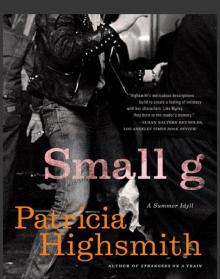 Small G: A Summer Idyll
Small G: A Summer Idyll The Boy Who Followed Ripley
The Boy Who Followed Ripley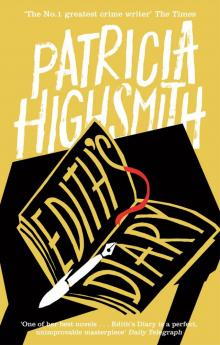 Edith's Diary
Edith's Diary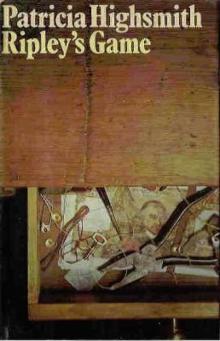 Ripley's Game
Ripley's Game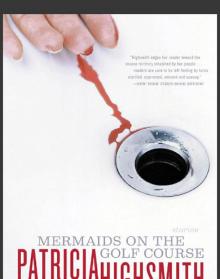 Mermaids on the Golf Course: Stories
Mermaids on the Golf Course: Stories Slowly, Slowly in the Wind
Slowly, Slowly in the Wind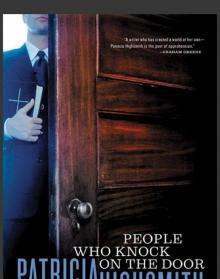 People Who Knock on the Door
People Who Knock on the Door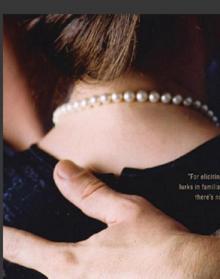 The Glass Cell
The Glass Cell The Blunderer
The Blunderer Those Who Walk Away
Those Who Walk Away A Suspension of Mercy
A Suspension of Mercy Eleven
Eleven Found in the Street
Found in the Street Ripley Under Ground
Ripley Under Ground The Black House
The Black House The Cry of the Owl
The Cry of the Owl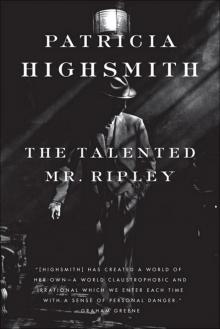 The Talented Mr. Ripley
The Talented Mr. Ripley This Sweet Sickness
This Sweet Sickness The Two Faces of January
The Two Faces of January The Animal-Lover's Book of Beastly Murder
The Animal-Lover's Book of Beastly Murder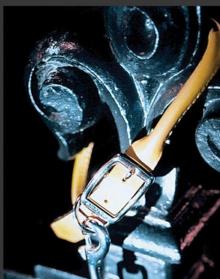 A Dog's Ransom
A Dog's Ransom Deep Water
Deep Water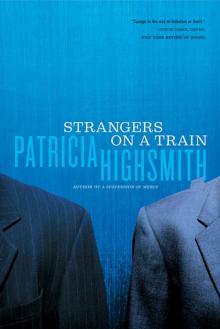 Strangers on a Train
Strangers on a Train Ripley Under Water
Ripley Under Water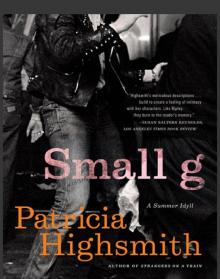 Small g
Small g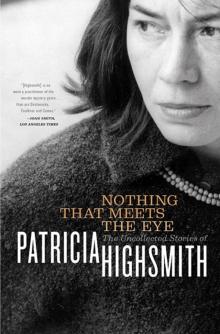 Nothing That Meets the Eye
Nothing That Meets the Eye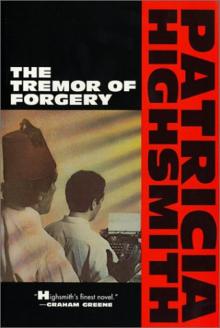 Patricia Highsmith - The Tremor of Forgery
Patricia Highsmith - The Tremor of Forgery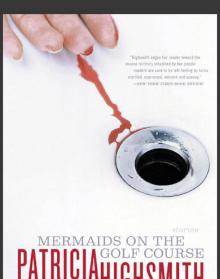 Mermaids on the Golf Course
Mermaids on the Golf Course Suspension of Mercy
Suspension of Mercy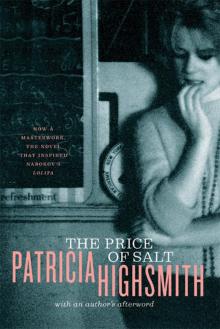 The Price of Salt, or Carol
The Price of Salt, or Carol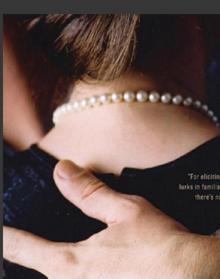 Glass Cell
Glass Cell